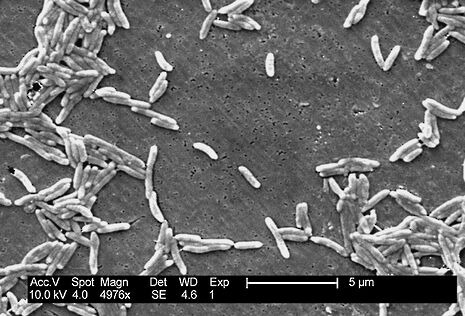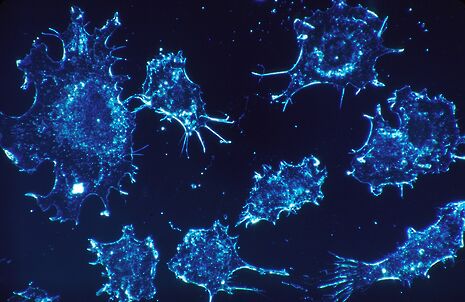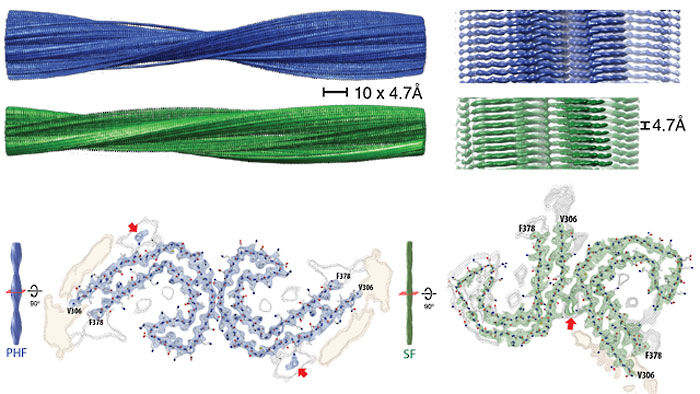Could our own microbiome be giving us cancer?
There are more microbes than our own cells living in our body, but could these be doing more harm than good?

Our bodies are home to a diverse range of microbes – a recent estimate suggested that for every human cell in our body there are 1.3 microbial cells, and more than 10000 species occupy the human ecosystem. Recently, there has been a surge of interest in this community of micro-organisms, known as the microbiome, due to their potential links to cancer.
It has long been known that the environment can play a part in cancer risk, with UV light and tobacco as known major risk factors, but now it seems that the microbes living on us could also affect our risk of developing cancer, as well as our response to therapy.
Cancer is associated with a decrease in microbial diversity
Much of the early evidence for the links between cancer and the microbiome has come from sequencing studies comparing the composition of microbiome in faecal samples from both cancer patients and from a control group. These found that cancer is associated with a decrease in microbial diversity, as well as increased abundance of certain species of bacteria in some cases.
However, this is only a correlation, and in addition the faecal microbiome is different from the mucosal-associated microbiome which is more likely to have a role in disease. As a result, experiments have been carried out in mice in an attempt to show causality. A study at the University of Michigan in 2013 showed that transferring gut microbes from mice with colon cancer to those with no microbiome caused them to develop twice as many tumours in comparison to those receiving microbes from healthy mice. Future longer-term studies in humans will establish whether changes in the microbiome actually contribute to cancer progression, or whether the differences seen in the sequencing studies are a consequence of the disease.

Regardless of whether they are causal, the differences seen in the microbiome between healthy groups and cancer patients could potentially be used to develop new diagnostics. Researchers at the European Molecular Biology Laboratory were able to predict presence of colorectal cancer from the abundance of bacterial species in stool samples with about the same accuracy as a blood test. Another team of researchers in Canada are working on using the breast tissue microbiome as a tool in diagnosing breast cancer.
Further evidence suggests that the microbiome could affect responses to cancer therapy. This is especially evident in immunotherapy, a new type of treatment aimed at targeting cancer by harnessing the power of the immune system.
A study at the University of Texas showed that patients whose malignant melanoma responded to immunotherapy have more diverse gut bacteria. Researchers have suggested that in future patients’ microbiomes could be sequenced and modulated to enable their bodies to respond better to therapy.
Although it is still early days for research on the microbiome and cancer, so far the findings have exciting implications for the future. Once more is known about which microbial characteristics play a role in cancer progression, there is potential to use the research in developing new therapies – for example Crispr-Cas9 genome editing could be used to engineer cancer-preventing probiotic bacteria.
This research also raises questions about the use of broad-spectrum antibiotics – as diversity is important in the microbiome, this implies a need to develop more specific narrow-range antibiotics to ensure there are no negative impacts on health from reduced microbial diversity.
 News / Clare Hall spent over £500k opposing busway 24 December 2025
News / Clare Hall spent over £500k opposing busway 24 December 2025 Comment / The ‘class’ of Cambridge24 December 2025
Comment / The ‘class’ of Cambridge24 December 2025 News / Caius mourns its tree-mendous loss23 December 2025
News / Caius mourns its tree-mendous loss23 December 2025 Comment / Yes, I’m brown – but I have more important things to say22 December 2025
Comment / Yes, I’m brown – but I have more important things to say22 December 2025 News / Girton JCR publishes open letter expressing solidarity with Palestine25 December 2025
News / Girton JCR publishes open letter expressing solidarity with Palestine25 December 2025










